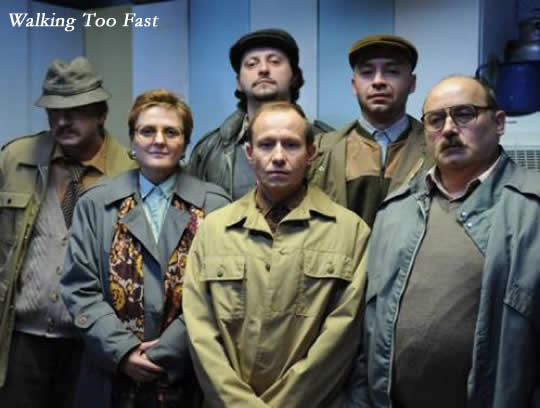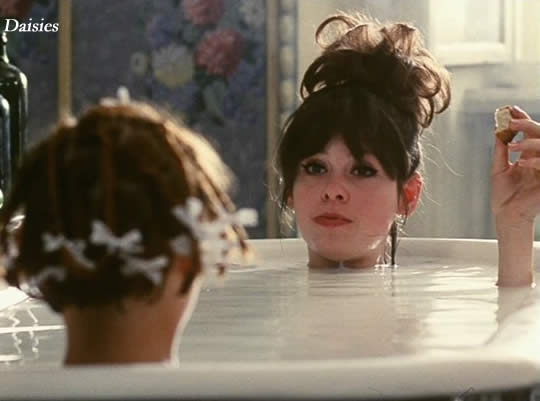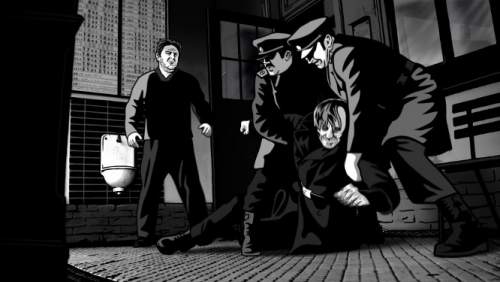 The first annual Czech Filmfest 2012 will take place at the Cinefamily Theater in Hollywood between May 16 to May 24, 2012. The festival will introduce both new and classic Czech movies to film audiences in Los Angeles, and several successful directors and actors will be present to promote their films.
The first annual Czech Filmfest 2012 will take place at the Cinefamily Theater in Hollywood between May 16 to May 24, 2012. The festival will introduce both new and classic Czech movies to film audiences in Los Angeles, and several successful directors and actors will be present to promote their films.
The 2012 Czech Filmfest has been organized by the Consulate General of the Czech Republic in Los Angeles and the Czech Film Center in Prague in cooperation with the Cinefamily in Hollywood and the Czech Center in New York, with support of Milk & Honey Films, Prague Studios, the Czech Tourism and European Language Movies in America (ELMA). Czech Filmfest is part of a traveling program called “New Czech Films US Tour” that visits major American cities such as New York, Chicago, San Francisco, Seattle, Portland, Salt Lake City and Washington, DC.
To learn more about the Czech Filmfest, we had a chance to speak to Mr. Michal Sedacek, Consul General of Czech Republic in Los Angeles.
BijanTehrani: Please tell us a little bit about Czech cinema in Los Angeles?
Michal Sedlacek: This month, we will have the first annual Czech Filmfest in Los Angeles and it has been made possible through a partnership with the Cinefamily organization. The festival starts on May 16th and goes on until the May 24th at the Silent Movie Theater in Hollywood. We will screen seven new Czech films from 2011, all belonging to the new wave of Czech cinema. I feel strongly about the success of these screenings because the American public has not seen any new Czech films for a while. The only exception was Kawasaki’s Rose, which was screened last year at the L.A. Film Festival and enjoyed a short theatrical release last November—besides that, there have been no new Czech films screened in L.A. for a long time. In addition to the new films, the Cinefamily wants to spice up the Czech Filmfest by offering American audiences a chance to see a few great Czech films from the 1960’s, such as the classic Daisies, directed by Vera Chytilova.
BT: You mentioned that the venue that will show the films is the Silent Theatre on Fairfax Avenue, run by Cinefamily; how can this venue help promote Czech cinema in L.A.?
MS: Because this is our first year, we want to build the audience and we wanted to go to a theater which younger American crowds would venture. I think Cinefamily is a very good venue for the Czech Filmfest! It sits about 130 people and it has a good location. It is on Fairfax Avenue, very close to Hollywood, so it is very easy to be approached from all directions and it is not too far for anybody. Also, the theatre gives you a feel of a classic cinema experience and I like that because it is such a nice touch when a theater can make you feel like you are going back in time and watching film, not just digital copies, and everything that you loved about cinema is right there.
BT: One of the reasons theaters are using films from the 60’s is because Czech films from that era have such a great sense of humor, and you can see the way they deal with love and life in these movies. How does the new Czech cinema compare to the cinema in the 60’s?
MS: Well it is, of course. a different time so you cannot see the same kind of films anymore. But you will be surprised to see that most of the films that we will be screening deal with history—either 1970’s or 1980’s, or even 1990s in some way—so you will get a sense of the historical context during the films. Czech humor is very settled—it is not action humor, it is more intellectual humor, so there are one or two films that are more comedic in this way so you get the feeling that the Czech tradition continues.
BT: Are there any directors coming here to L.A.?
MS: There are two directors which will be coming. One is Radim Spacek, he is the director of the film Walking too Fast. It is 2011’s best film from the Czech Republic. It is a film about opposition leaders and their life, and how members of the state secret police felt that they could not be prosecuted for anything and can run the country as they wished, they could even kill people. There was no law for them, and the movie shows what the other people had to do to survive and it gives the audience an impression of how it was to really deal with that kind of constant pressure and threat. Americans have never experienced something like that, people might start to idealize socialism and communism and you will see in the reality that it is always a very oppressive regime. The second director is a very young director, his name is Tomás Lunák. He made a film called Alois Nebel and it is actually a special animation. It was shot first and then animated around the real actors, it is a story of the Czech Revolution in 1989, and so it is a very interesting film which was in the Oscar competition this year.
 BT: How do you see the growth of young Czech Cinema? What kinds of films are they making and how successful have they been outside of the Czech Republic?
BT: How do you see the growth of young Czech Cinema? What kinds of films are they making and how successful have they been outside of the Czech Republic?
MS: Of course, Czech cinema also has a commercial side. The films need to succeed in the theatres and make money, so there are a lot of films which are not necessarily known for their artistic credit, but they are very popular. A lot of films are made like that and, at the same time, they are funny. Czechs love comedy and sometimes these films beat the American films at the box office in the Czech Republic. I should mention that we will also screen a brand new film called Four Suns, directed by the young filmmaker Bohdan Sláma. This is his fourth film and this film had premiered at Sundance this year. It was a big achievement for him to get a chance to go to Sundance and to have a premiere over there—it was the first Czech film to have a premiere over there since 1996, so it was a big success.
BT: Who are the sponsors of the festival?
MS: We have several good sponsors. The festival is organized together by the Czech Film Center in Prague and the Czech Consulate in LA. The Czech Cultural Center in New York also helps a lot. These are the three main organizations which deal with the festival. Our major sponsors are the Milk and Honey Film Company, which is a film service company here in LA and in Prague and provides services for people who want to film in the Czech Republic. The second major sponsor is Prague Studios, which is a movie studio where you can easily build sets and shoot films and commercials in Prague—all film related as you can see. We have ELMA here in Los Angeles, which supports non-English language films in Los Angeles, and we are very grateful that ELMA has put up the money for us. Then there is Czech Tourism agency, which supports the festival in order to introduce the beauty of the Czech Republic to American viewers. We also have a traditional Czech company, Becherovka, which supports the Czech Film Fest in Portland, OR.
BT: Are you looking to expand the festival in the future?
MS: Yes, the festival is traveling around the United States. It will start in New York in the Brooklyn Academy of Arts, then it will move to Los Angeles, San Francisco, Salt Lake City, Portland, Washington D.C., Chicago, and we will conclude in Seattle. There will be 6-8 films in each venue and it will be a two month traveling program. We would like to expand next year to even go to cities like Phoenix, Arizona and Denver, Colorado—depending what kind of audience response we get. We might even go to bigger theatres if we think that we can attract more people, but this call comes down to the quality of the films that we are screening and we hope that we will screen the best ones. We just concluded a very successful series of Milos Forman films here in L.A. because he celebrated his 80th birthday in February.

